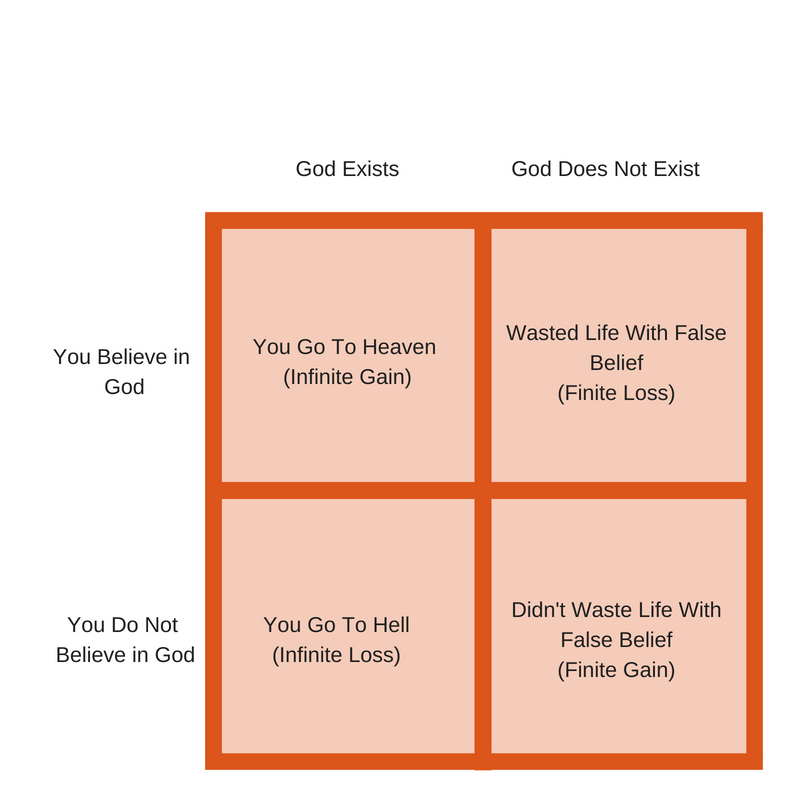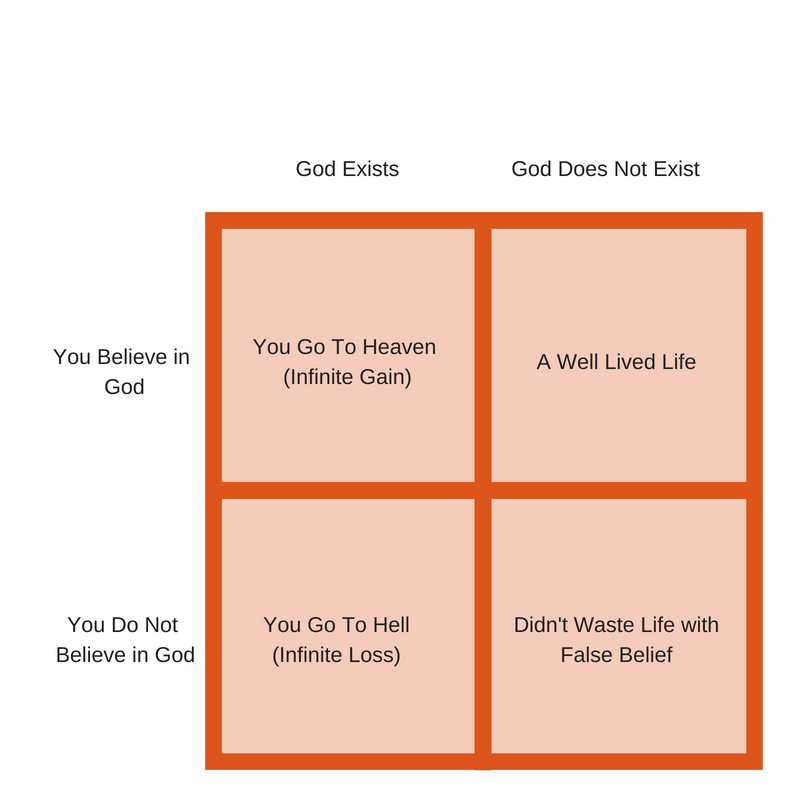A philosopher by the name of Blaise Pascal came up with a thought experiment that attempts to show that you are better off believing in God than you are no believing. Just as you gamble in the lottery, you gamble with the decision in your life of whether or not to believe in God.
When gambling in the lottery, you look to see what your odds are versus how large the payout is. If the payout is large enough against your odds, you should buy the lottery ticket.
When deciding whether or not to believe in God, the payout is infinite. Either you have an infinite reward or infinite punishment (if God exists). If God does not exist, you have a finite payout that lasts the term of your lifetime. Here is a chart to help explain.

What is the rational answer?
Since the payout for believing in God is infinitely greater and the loss is only finite (vs. a mere finite gain if you were to not “bet” on God) it is seemingly rational to believe in God. But there are problems with this scenario.
1. Which religion is one supposed to choose?
The odds are both diluted and conflicting given that there are multiple conflicting religions that do not give an infinite payout to believers of other religions.
2. How can you force yourself to believe in something? Is it really possible to “choose” to believe in God?
In this case, you would need a religious experience to convince you to believe. Given the odds of an infinite payout, just one day going to church could convert you and therefore, it would be rational to go to church. However, you may also have a religious experience doing a number of other things… or ANYTHING.
Taking It A Step Further
In light of the previous dilemma’s it is likely that Pascal wanted to proport the following premises:
Premise 1: If God exists you are better off believing in him.
Premise 2: If God does not exists you are STILL better off believing in him, as you are likely to live out a better life.

Blaise Pascal has written a collection of thoughts on faith, reason and theology (including Pascal’s Wager). Look deeper into the writings of Blaise Pascal in his works titled, Pensées.
